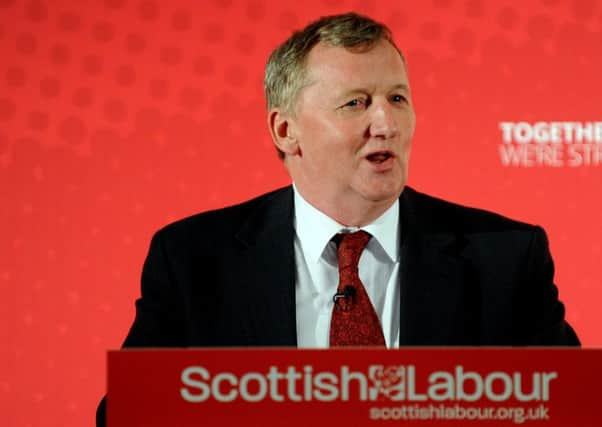Leader comment: After the chaos, a sign of Labour order


Mr Rowley was also recorded saying he wanted trade unionist Richard Leonard to beat Anas Sarwar for the leadership, despite promising in public he was neutral.
This led to a statement from MSP Jackie Baillie who said Rowley was guilty of “hypocrisy”. Mr Leonard’s team then issued a press release denying involvement in any plot but with the email subject line: “Coment [sic] on latest jackie baillie pish”.
So far, so unseemly.
Advertisement
Hide AdAdvertisement
Hide AdThe week ended a lot better than it began, however, with Labour MPs finally pushing forward on the issues that matter: what will a post-Brexit Britain and Scotland look like? And how can we shape this to ensure Scotland gets what it needs?
This is a departure from a party that has been defined in recent times largely by what it doesn’t stand for, ie independence, and the first example of Scottish Labour using its influence in a constructive way at Westminster since the 2015 wipe out.
Scottish Labour MPs are now lobbying English colleagues and party leader Jeremy Corbyn to back plans for a federal UK, including a role for devolved governments in setting immigration policy.
The group believes the plan can only gain traction with support from Labour MPs in England, where historically there has been little appetite for constitutional reform.
Is there an opening here for Corbyn to agree something on immigration? Possibly. Corbyn wants enforcement on a UK level but is open to the idea of matching skills to needs for parts of the UK.
Scotland is facing skills shortages in many key areas. And with an ageing population and the threat of immigration reducing either through Brexit-related uncertainty, or tougher rules for entry, this is only going to get worse.
Scotland is not going to reproduce its way out of this issue. We need a smart, targeted immigration policy that can attract the best. Whether Labour’s Constitutional Convention is the first step or not, at least it’s a healthy place to start what is now a critical debate.